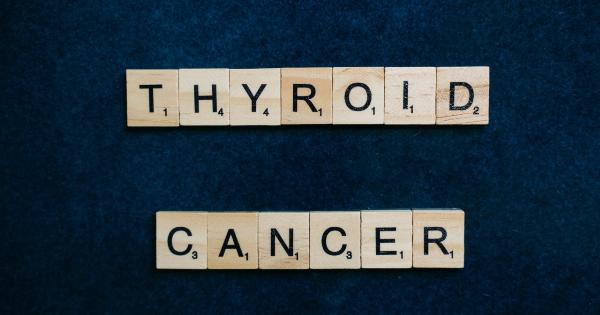Thyroid cancer is a type of cancer that affects the thyroid gland, a small gland located in the neck.
While thyroid cancer is relatively rare, it is important to understand the disease so that patients can recognize symptoms and seek treatment as early as possible. In this article, we will discuss important facts about thyroid cancer, including risk factors, symptoms, diagnosis, and treatment options.
Risk Factors for Thyroid Cancer
There are several known risk factors for thyroid cancer. These include:.
- Gender: Women are at higher risk of developing thyroid cancer than men.
- Age: Thyroid cancer is most common in people between the ages of 25 and 65.
- Family history: A family history of thyroid cancer can increase a person’s risk of developing the disease.
- Exposure to radiation: Exposure to radiation, particularly during childhood, can increase the risk of developing thyroid cancer.
Symptoms of Thyroid Cancer
Thyroid cancer may not cause any symptoms in its early stages. As the cancer grows, however, patients may experience:.
- A lump or swelling in the neck
- Pain in the neck or throat
- Hoarseness or difficulty speaking
- Trouble swallowing or breathing
- Swollen lymph nodes
Diagnosing Thyroid Cancer
If a patient has symptoms that suggest thyroid cancer, a doctor may perform one or more of the following tests:.
- Physical exam: The doctor will examine the patient’s neck for lumps or swelling.
- Blood tests: Blood tests can check for abnormal levels of thyroid hormones, which can indicate thyroid cancer.
- Ultrasound: An ultrasound uses sound waves to create images of the thyroid gland. This test can help doctors confirm the presence of a tumor.
- Biopsy: A biopsy involves removing a small sample of cells from the thyroid gland and examining them under a microscope. This is the most precise way to diagnose thyroid cancer.
Treatment Options for Thyroid Cancer
The treatment options for thyroid cancer depend on the type and stage of the cancer. Common treatment options include:.
- Surgery: Surgery to remove the thyroid gland (thyroidectomy) is often the first treatment for thyroid cancer.
- Radiation therapy: Radiation therapy may be used after surgery to kill any remaining cancer cells.
- Chemotherapy: Chemotherapy is not commonly used to treat thyroid cancer, but it may be recommended in advanced cases.
- Targeted therapy: Targeted therapy drugs may be used to treat advanced cases of thyroid cancer.
Tips for Managing Thyroid Cancer
After a diagnosis of thyroid cancer, patients may feel overwhelmed. Here are some tips for managing the disease:.
- Follow your doctor’s treatment plan.
- Stay informed about your condition, but avoid information overload.
- Join a support group for people with thyroid cancer.
- Eat a healthy, balanced diet and exercise regularly.
- Maintain regular check-ins with your doctor to monitor the cancer.
Conclusion
Thyroid cancer is a serious disease, but with early diagnosis and proper treatment, many patients are able to recover and live normal, healthy lives.
If you experience any symptoms of thyroid cancer, speak to your doctor right away to discuss your options.




























